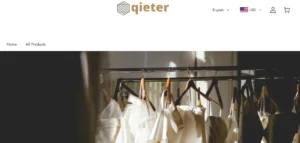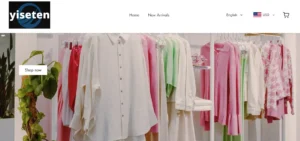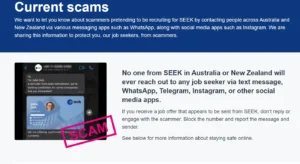In the realm of online shopping, scammers are constantly devising new ways to deceive unsuspecting consumers. One prevalent scheme gaining traction is the Nike Lucky Clearance Carnival Scam, which targets individuals through social media platforms like Facebook.
This scam entices victims with promises of massive discounts on Nike products, only to deliver low-quality knock-offs or nothing at all.
This article sheds light on the deceptive tactics used by scammers, the consequences of falling for the scam, and provides warning signs to help users identify and avoid fraudulent schemes.
The Nike Lucky Clearance Carnival Scam: How It Operates
The Nike Lucky Clearance Carnival Scam operates by enticing potential victims with fake discounts and luring them to fake websites resembling official Nike outlets. Scammers target vulnerable consumers by preying on their desire for a good deal. They take advantage of the psychology behind online shopping scams, knowing that people are more likely to fall for attractive discounts.
The scam is primarily promoted through social media ads on platforms like Facebook and Instagram, where scammers promise unrealistically low prices to grab attention. These fake websites use deceptive tactics to appear legitimate, such as professional designs and copied sections from real businesses. By exploiting consumers' trust and desire for bargains, scammers profit from their victims' longing for belonging and acceptance.
It is important for consumers to be aware of these tactics and exercise caution when shopping online.
Deceptive Tactics Used by Scammers
While engaging in the Nike Lucky Clearance Carnival Scam on Facebook, scammers employ various deceptive tactics to trick unsuspecting shoppers. These tactics are designed to exploit people's desire for a good deal and make quick money for the scammers.
Fake websites resembling official Nike outlets are set up to lure victims, promising huge discounts of up to 85-90% off. These websites may have professional designs but contain small giveaways like spelling errors. Contact information is often missing, making it difficult to report scams or seek assistance.
Scammers frequently change domains and avoid traceable contact information, making it challenging to hold them accountable. It's important to be aware of these tactics and report scams to protect yourself and others.
Consequences of Falling for the Scam
Falling for the scam can lead to significant financial loss and potential risks to personal information. Here are the consequences of falling for the Nike Lucky Clearance Carnival Scam:
- Financial Loss: Victims of the scam often end up losing their money. They either receive nothing in return for their purchase or receive low-quality products that are not worth the discounted price they paid. The so-called clearance sale is simply a way for scammers to empty people's wallets, with no returns or refunds available.
- Personal Information Risks: Scam websites typically ask for personal information like names and credit card details. Falling for the scam means putting this information at risk. Scammers can either use it for other fraudulent activities or sell it to third parties. This can lead to further financial loss and potential identity theft.
- Scam Awareness: Falling for this scam can make individuals more vulnerable to future scams. Once scammers have access to personal information, victims may become targets for additional fraudulent activities, resulting in even more financial loss and potential harm to their personal lives.
It is crucial to remain vigilant and cautious when engaging in online shopping to protect oneself from these risks.
Warning Signs of Scam Websites
When evaluating the credibility of a website, it is important to be cautious if the content seems copied or poorly written. Scam websites often have spelling errors, grammatical mistakes, and copied sections from real businesses. Legitimate businesses usually have professional and well-written content.
Another warning sign is the lack of customer reviews or overwhelmingly negative reviews. Conducting a quick search for reviews can help determine the credibility of the website. Lack of reviews can be a red flag for a scam. Additionally, be skeptical of websites with no or very few reviews.
Falling for a scam website not only results in financial loss but also puts personal information at risk. Scammers often ask for personal information like names and credit card details, which can be used for other scams or sold to third parties. It is crucial to protect personal information and be aware of the warning signs to spot fake websites.
Other Online Shopping Scams to Be Aware Of
However, consumers should also be aware of other online shopping scams that can potentially deceive them. Here are three examples of scams to be cautious of:
- Fake Wayfair clearance sales: Scammers create counterfeit websites offering limited-time clearance sales on Wayfair products. They entice unsuspecting customers with offers of 70-80% off on all items. However, these websites are designed to trick people into making purchases, only to receive low-quality or counterfeit products. It is important to verify the authenticity of the website and the legitimacy of the deals before making a purchase.
- Imitation jewelry scams: Some scam sites offer unbelievable discounts on luxury jewelry brands like Tiffany & Co. and Pandora. However, the products received are far inferior to the genuine articles. To avoid falling victim to this type of scam, it is crucial to be wary of websites offering unbelievable discounts on luxury jewelry. Verify the authenticity of the website and the legitimacy of the deals by looking for trusted sources and reviews before making any purchases.
- Other fraudulent online sales schemes: Scammers frequently target fans of popular products, creating similar scams in various industries. It is essential to be cautious of websites claiming to have exclusive deals on popular brands like Wayfair. Conduct thorough research, check for customer reviews, and verify the authenticity of the website before making any purchases.
Protecting Yourself From Scams on Facebook
To safeguard yourself from scams on Facebook, it is important to be cautious and proactive in protecting your personal information and financial security.
One crucial step is to avoid Facebook scams by recognizing fake advertisements. Scammers often use enticing offers and unrealistic discounts to lure unsuspecting users. It is important to be skeptical of ads that promise deals that seem too good to be true.
Look for warning signs such as spelling errors, grammatical mistakes, or poorly written content on websites. Legitimate businesses usually have professional and well-written content. Additionally, check for customer reviews and conduct a quick search to verify the credibility of the website.
Frequently Asked Questions
How Can I Protect My Personal Information From Being Compromised When Shopping Online?
To protect personal information when shopping online, ensure the website is secure (look for HTTPS), use strong and unique passwords, enable two-factor authentication, avoid suspicious websites, regularly update devices and software, and monitor financial statements for any unauthorized activity.
Are There Any Legal Actions Being Taken Against the Scammers Behind the Nike Lucky Clearance Carnival Scam?
At this time, there is no specific information available regarding legal actions or investigation progress against the scammers behind the Nike Lucky Clearance Carnival scam. It is important to remain vigilant and report any fraudulent activity to the appropriate authorities.
What Should I Do if I Have Already Fallen Victim to the Nike Lucky Clearance Carnival Scam?
If you have fallen victim to the Nike Lucky Clearance Carnival scam, it is important to take immediate action. Contact your bank or credit card company to report the fraudulent transaction and request a chargeback. Additionally, report the scam to the appropriate authorities, such as your local law enforcement agency and the Federal Trade Commission (FTC). Keep any evidence you have of the scam, such as emails or screenshots, and consider seeking legal advice to explore options for recovering lost funds.
How Can I Distinguish Between a Legitimate Clearance Sale and a Scam?
To distinguish between a legitimate clearance sale and a scam, consumers should look for red flags such as spelling errors, copied content, and lack of customer reviews. Conducting a quick search for reviews can help verify the credibility of the website. Additionally, skepticism towards websites offering unrealistically low prices and exclusive deals on popular brands is advised. To avoid online shopping scams, it is essential to verify the authenticity of the website and the legitimacy of the deals, and to rely on trusted sources and customer reviews before making a purchase.
Are There Any Resources or Organizations That Help Victims of Online Shopping Scams Recover Their Lost Money?
Supportive organizations and legal rights exist to help victims of online shopping scams recover lost money. These resources provide guidance and assistance in pursuing legal action and navigating the process of recovering funds.
Conclusion
In conclusion, it is crucial for online shoppers to be cautious and vigilant when encountering deals that seem too good to be true, such as the Nike Lucky Clearance Carnival Scam on Facebook. Scammers are constantly devising new tactics to deceive unsuspecting consumers, resulting in financial loss and disappointment.
By being aware of the warning signs of fraudulent websites and staying informed about other online shopping scams, individuals can protect themselves and make informed decisions while shopping online.



















































